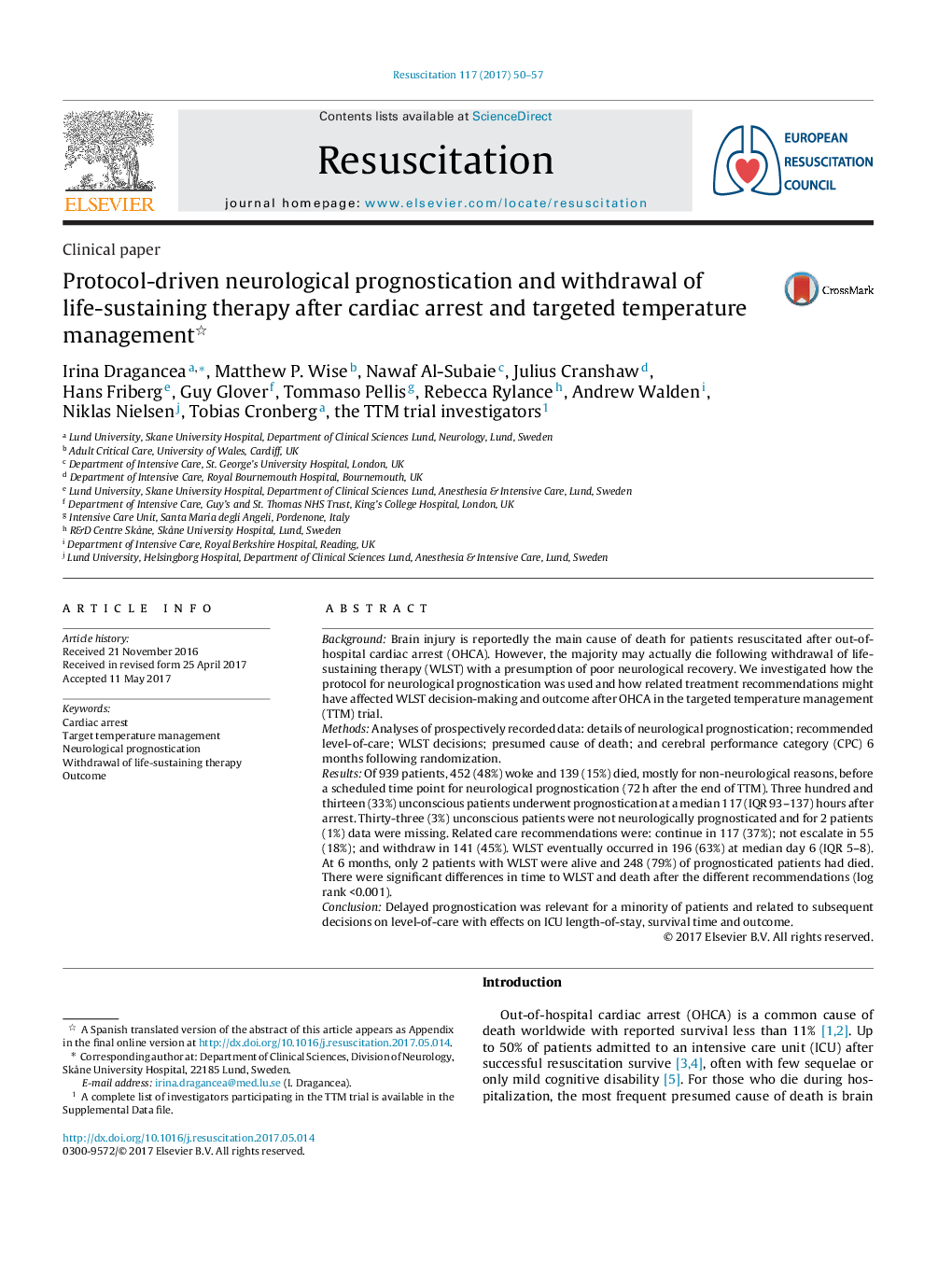| کد مقاله | کد نشریه | سال انتشار | مقاله انگلیسی | نسخه تمام متن |
|---|---|---|---|---|
| 5619955 | 1578967 | 2017 | 8 صفحه PDF | دانلود رایگان |

BackgroundBrain injury is reportedly the main cause of death for patients resuscitated after out-of-hospital cardiac arrest (OHCA). However, the majority may actually die following withdrawal of life-sustaining therapy (WLST) with a presumption of poor neurological recovery. We investigated how the protocol for neurological prognostication was used and how related treatment recommendations might have affected WLST decision-making and outcome after OHCA in the targeted temperature management (TTM) trial.MethodsAnalyses of prospectively recorded data: details of neurological prognostication; recommended level-of-care; WLST decisions; presumed cause of death; and cerebral performance category (CPC) 6 months following randomization.ResultsOf 939 patients, 452 (48%) woke and 139 (15%) died, mostly for non-neurological reasons, before a scheduled time point for neurological prognostication (72Â h after the end of TTM). Three hundred and thirteen (33%) unconscious patients underwent prognostication at a median 117 (IQR 93-137) hours after arrest. Thirty-three (3%) unconscious patients were not neurologically prognosticated and for 2 patients (1%) data were missing. Related care recommendations were: continue in 117 (37%); not escalate in 55 (18%); and withdraw in 141 (45%). WLST eventually occurred in 196 (63%) at median day 6 (IQR 5-8). At 6 months, only 2 patients with WLST were alive and 248 (79%) of prognosticated patients had died. There were significant differences in time to WLST and death after the different recommendations (log rank <0.001).ConclusionDelayed prognostication was relevant for a minority of patients and related to subsequent decisions on level-of-care with effects on ICU length-of-stay, survival time and outcome.
Journal: Resuscitation - Volume 117, August 2017, Pages 50-57